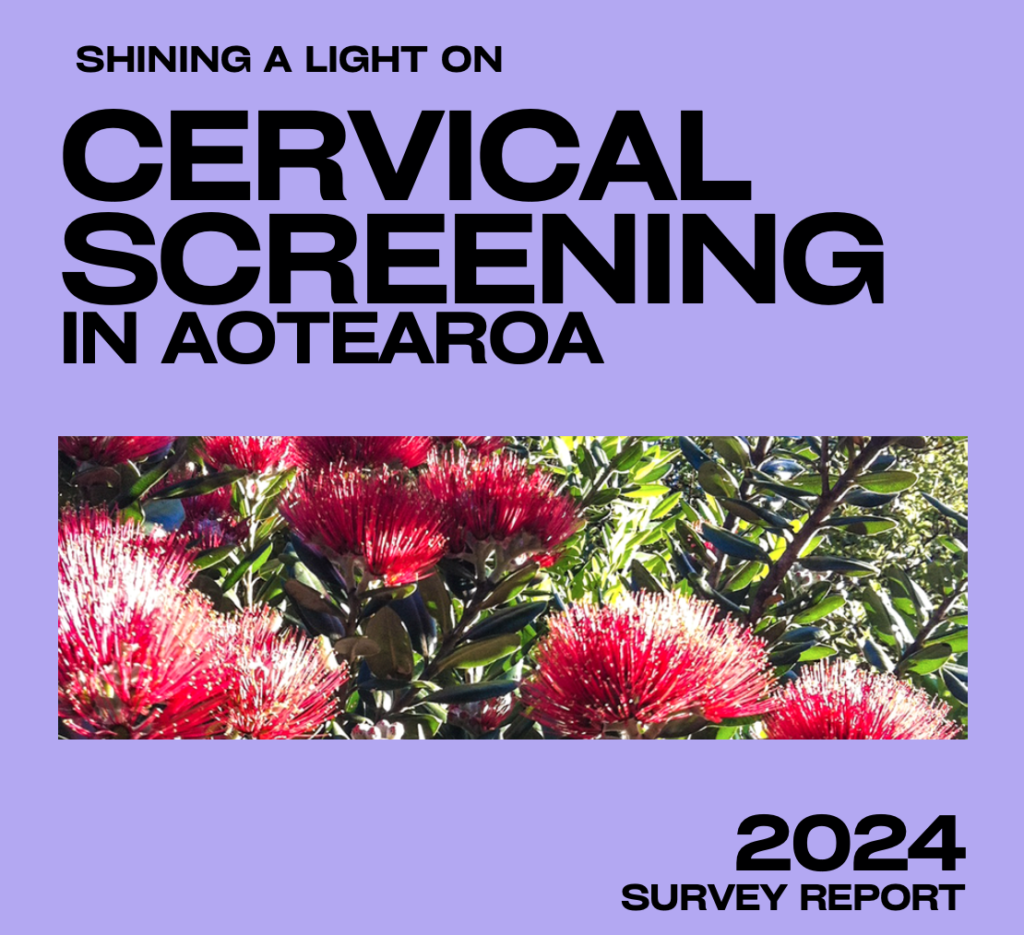Cervical cancer is cancer of the cervix, which is the lower part of the uterus or womb. Cervical cancer develops when abnormal cells grow on the cervix. This usually happens slowly over time, often taking many years. These abnormal cells are caused by infection with high-risk types of human papilloma virus (HPV). Abnormalities in the cells of the cervix can be detected by cervical screening and removed. Each year there are around 25,000 abnormal smear test results among New Zealand women.
Symptoms of cervical cancer
The symptoms of cervical cancer can include:
➜ Bleeding after menopause
➜ Bleeding between periods
➜ Heavier periods than normal
➜ Abnormal vaginal discharge
➜ Painful sex, or bleeding after sex
If you have any of these symptoms see your doctor.
Cervical Screening
Screening remains the single most effective intervention against cervical cancer. Cervical screening has had a dramatic impact on the incidence of cervical cancer and cervical cancer deaths in developed countries including New Zealand.
In Aotearoa New Zealand, 180 people a year are diagnosed with cervical cancer. Of those 180, 85% have either never been screened or have not had regular screening.

All women and people with a cervix, aged between 25 and 69, are eligible for screening in New Zealand. This includes:
➜ Women who have never been sexually active
➜ Women who have sex with women
➜ Women who have not been sexually active for many years
➜ Women who have had a hysterectomy but still have a cervix
Cervical screening has been extended to age 70 years to 74 years inclusive for participants who haven’t had a negative screen in the 5 years from the age of 65 years. Women aged 70 and over who have never had a cervical smear test are advised to have a smear test followed by another a year later. If both tests are normal no further tests are needed.
Self-testing
In September 2023, self-testing was introduced into the cervical screening programme. This is using a vaginal swab, similar to taking a vaginal swab for an STI test. In many instances, you can do your own vaginal swab in the bathroom at your GP/healthcare provider. For a lot of people, this is a much more comfortable option.
Find more information about the self-test, including videos on how to do one here.

Where can I get my cervical screening done?
Cervical screening (also known as smears) is available from general practitioners or nurses, marae-based or other Māori health centres, Pacific and women’s health centres, and Sexual Wellbeing Aotearoa clinics (formerly Family Planning).
Cost
The national cervical screening programme is not fully funded. The cost of a smear test is usually similar to the cost of seeing a doctor or nurse. Some community organisations offer a free or low-cost service.
Cervical screening is free for some people. If you are:
- aged 30 years and over and have never been screened
- aged 70 to 74 years and have never been screened
- aged 30 years and over and it has been 5 years or more since your last cytology, or 7 years or more since your last HPV test
- aged 70 to 74 years and have not had 2 consecutive normal cervical cytology results between 62 to 69 years, or a ‘HPV’ not detected’ result in the 5 years prior to age 70
- Māori and Pacific wāhine aged 25 to 69 years
- aged 25 to 69 and hold a Community Services Card.
Shining a light on cervical screening in Aotearoa
In 2023-2024, Women’s Health Action undertook research into people’s experiences of cervical screening across the country. This research was done via online survey, with 165 respondents. It was during an important time when the self-test was being introduced, and we asked people about their views of self-testing.
Some of the key insights and understandings we gathered from this research were about:
- People viewing the new self-test positively
- Issues with how providers’ were communicating cervical screening results to patients
- Pain management (or lack thereof) from providers
- The cost of participating in cervical screening (both financial, and other costs e.g. having to take time off work, childcare).
You can read and download the full report here.

Useful links
Health NZ – Cervical Screening » information on the cervical screening programme, including where to find a provider.
National Cancer Institute » detailed information on cervical cancer and treatment.
Cervical cancer » information from ‘Talk Peach’, a foundation educating New Zealanders on gynaecological diseases and supporting those who are diagnosed.